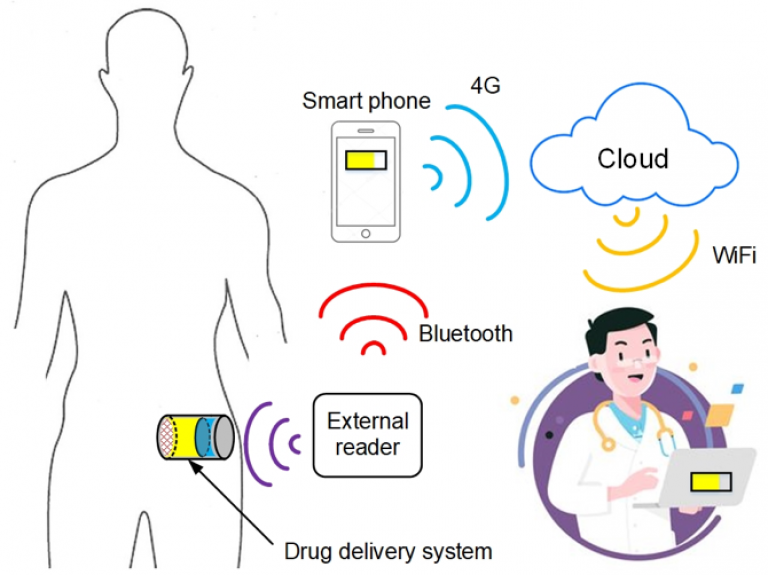Implantable sensor to revolutionise drug delivery
A low-cost, batteryless dosage sensor can maximise drug efficacy.

27 September 2018
Led by Dr Xiao Liu, the UCL Sensors Systems and Circuits Group are working to develop a low-cost batteryless wireless dosage sensor which can detect the drug dosage inside a drug reservoir and determine the release rate during drug delivery.
Following rapid advances in microfabrication and materials science, small implantable drug delivery (IDD) devices have become very appealing for many types of drug and for treating chronic diseases. It offers several unique advantages - it localises drug delivery, maximises dose efficacy and reduces toxicity and side effects. There are currently two types of IDD devices - active and passive, depending on whether it contains active electronics for monitoring the drug delivery. Passive IDD devices contain no electronics. They are simple but lack quantitative feedback to patients/clinicians on the drug dosage and release rate.
Active devices with built-in monitoring electronics have higher intelligence but are physically larger and more costly. Having an implantable battery for maintaining the operation of an active device is also of a potential safety hazard. The team are developing a hybrid technology which combines the strength of both passive and active IDD devices. The new technology requires no battery, but is still able to transfer important drug delivery information to a wireless reader. It forms a major step towards low-cost personalized medical tracking and chronic disease management tailored to individual patients.
Xiao was awarded a £574,000 UKRI Innovation Fellowship on Leading-Edge Healthcare and Medicines.
Related links:
 Close
Close

